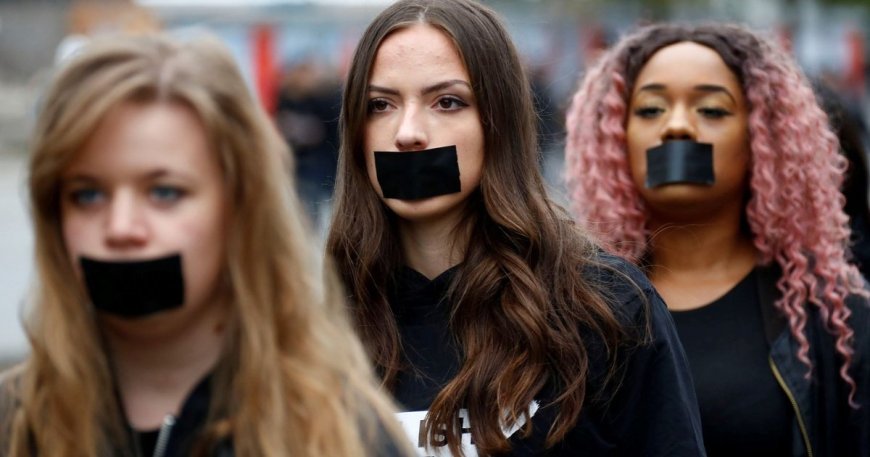Inside the Global Crackdown on Human Trafficking: What Interpol's 2025 Operation Uncovered
Interpol’s 2025 operation exposed major global human trafficking networks, with India playing a pivotal role in busting key syndicates.

*In a sweeping international sting, Interpol has exposed an extensive web of human trafficking syndicates operating across continents, uncovering deep links between global crime networks—and implicating several high-level operatives in India. The 2025 operation marks one of the largest cross-border criminal investigations in recent history, sending shockwaves through the international law enforcement community.
A Coordinated Global Strike
Earlier this month, Interpol announced the results of Operation Liberterra II, a multi-nation crackdown on human trafficking that spanned 44 countries and led to over 1,250 arrests. The operation targeted traffickers involved in forced labor, sexual exploitation, and child smuggling—crimes that have surged alarmingly in the post-pandemic global economy.
According to Interpol’s official statement, the operation was launched in response to "increasingly sophisticated tactics" used by trafficking networks to move victims across borders undetected. The effort was coordinated with Europol, national police forces, and NGOs operating in affected regions.
“What we’re seeing is a global marketplace of human lives. This is organized crime at its most exploitative,” said Jürgen Stock, Interpol’s Secretary General.
India’s Key Role in the Investigation
India, one of the transit and destination hubs identified during the investigation, played a critical role. The Central Bureau of Investigation (CBI), in collaboration with the Ministry of Home Affairs, cracked down on multiple human trafficking rings operating out of Mumbai, Kolkata, Hyderabad, and border towns in West Bengal.
According to a report by The Hindu, over 112 individuals were arrested in India alone, and more than 240 victims—including women and minors—were rescued from trafficking hubs disguised as recruitment agencies, massage parlors, and private hostels.
CBI officials confirmed the discovery of international money trails linking Indian operatives to networks in the Gulf, Southeast Asia, and even Eastern Europe.
New Trends: Cryptocurrency and Dark Web Deals
One of the most startling revelations from the operation was the use of cryptocurrency wallets and dark web marketplaces to traffic and exploit individuals.
Interpol’s cybercrime division uncovered transactions through platforms such as Monero and Ethereum, often routed through offshore accounts in countries like Panama and the Cayman Islands. The anonymized nature of these currencies has made it increasingly difficult for law enforcement agencies to track payments.
Security analysts at Brookings Institution have long warned that traffickers are leveraging blockchain and encrypted messaging apps to hide communications and evade detection. This operation confirms those fears.
The Human Cost
Beyond statistics and seizures, the most chilling element remains the trauma endured by survivors. Many victims were lured with false promises of employment or education, only to be held in deplorable conditions and subjected to abuse.
In a report by the International Labour Organization, it is estimated that over 50 million people worldwide were trapped in modern slavery in 2023—a number that appears to have only grown.
What’s Next? International Cooperation and Legal Reform
The success of Operation Liberterra II has set the stage for renewed global collaboration. The Indian government is now exploring updates to the Immoral Traffic (Prevention) Act, 1956, and pushing for stricter penalties against human trafficking under the Indian Penal Code.
India has also pledged further support to Interpol’s I-FORCE (International Fugitive Offender Rapid Capture Environment) program, aimed at faster extradition and information-sharing across borders.
Human rights organizations such as Anti-Slavery International and Freedom United have praised the operation, but emphasize that policy changes must be followed with sustained implementation.
“This is a moment of reckoning. It’s time for governments and tech platforms to join hands in eliminating the trafficking economy,” said Joanna Ewart-James, Executive Director of Freedom United.
Conclusion
The dismantling of these human trafficking syndicates is a powerful reminder of what coordinated law enforcement efforts can achieve. However, the battle is far from over. As criminal networks become more technologically adept, international agencies will need to stay one step ahead.
India’s active role in the operation not only exposed critical vulnerabilities but also demonstrated its capacity to be a leader in global justice. The revelations from Interpol’s 2025 crackdown serve as both a warning and a call to action—for nations, lawmakers, and civil society alike.














